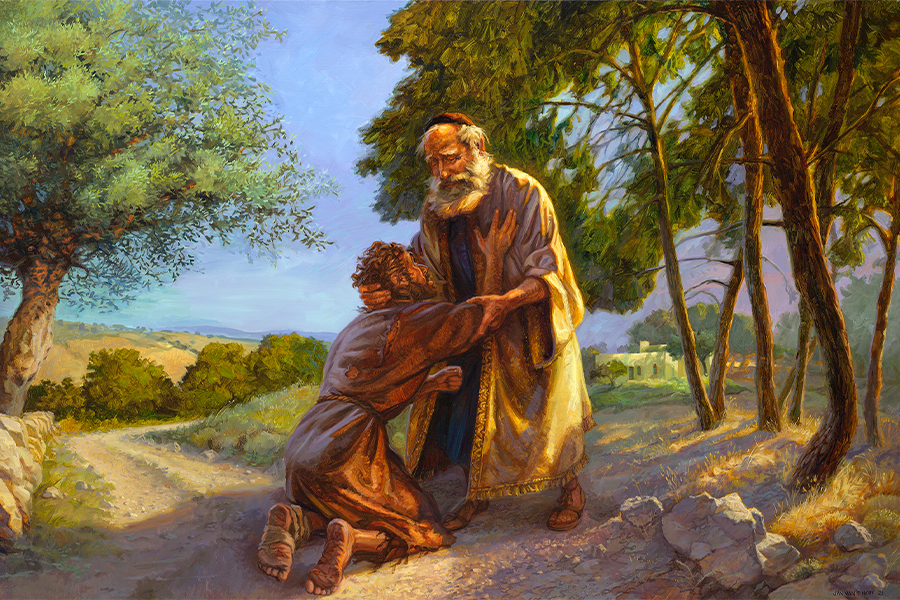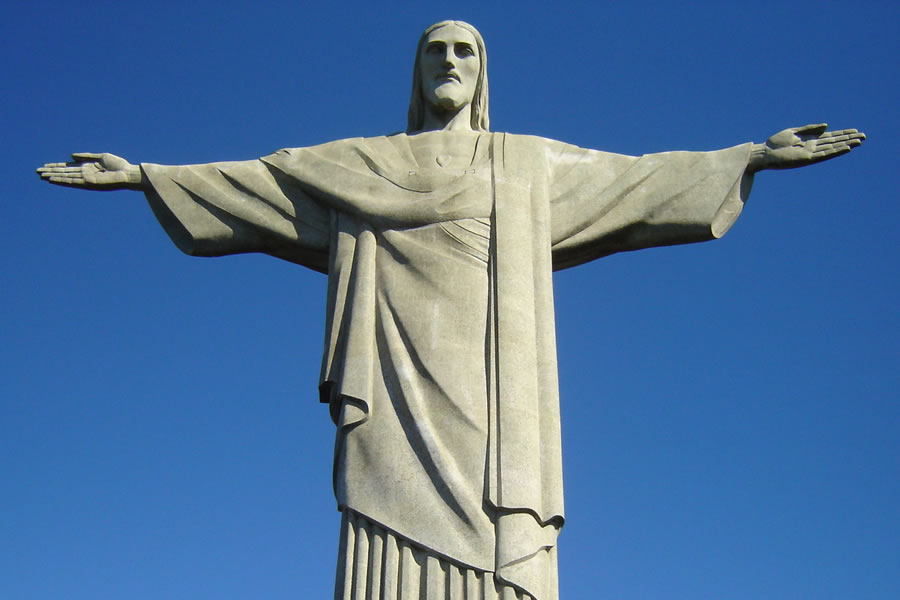
All of Us Must learn to Forgive
09-11-2022Pastoral ReflectionsRev. Brian F. ManningThe major theme of the mass readings this weekend is God’s forgiveness. Upon reflection, we may realize that God’s forgiveness is part of the core of our faith. The gracious acts of forgiveness by God truly empower us to go on in our daily lives. We realize that there is no completely logical or scientific explanation of why our God forgives us. Forgiveness by God gives us back our future and puts us back on the right road to living life
READ MORE
What it Takes to be a Follower of Jesus
09-04-2022Pastoral ReflectionsRev. Brian F. ManningThe larger message of this weekend’s readings is that we probably need to look at life differently than we do and that we should change or adjust our point of view. For what we see has to do with where we stand in the sense of what we can see. Too close, we see too little, and too far, we miss the details; we need to change our mental point of view as according to this weekend’s scripture. In many ways, we only see things from our own point of view. We are being invited this weekend to look at things from God’s point of view, or at least to incorporate part of this view into our own.
READ MORE
We must freely accept his offer of salvation
08-21-2022Pastoral ReflectionsRev. Brian F. ManningIn the olden days, way back before handheld calculators were common (!), school always began the Wednesday after Labor Day, no matter how early or late this holiday was. As time has moved on, school often starts before Labor Day. Colleges and Universities often start at the start of the third week of August. Lower education often begins the last week of August. It does not really matter when education formally begins, we all know as we creep along in August and as the evening sun has less time that our school year and Autumn way of life will soon be beginning. There is however a theme for this weekend that supersedes this time of change and new beginnings for education. We learn in the passages this weekend that we can always learn how to be better followers of Jesus Christ. We need to continually listen to His Word in sacred scripture, reflect upon it, and put it into practice in our daily life.
READ MORE
We must be fully committed to Jesus on our journey
08-14-2022Pastoral ReflectionsRev. Brian F. ManningSometimes we think the heroic figures of the Old Testament had easy lives. We imagine that the prophets were always honored and listened to no matter what. We tend to believe that they were most welcomed by the people to pronounce a message on behalf of God, even a negative message. Jeremiah was a prophet that the people listened to quite closely, but the people did not like what he had to say to them. He spoke to them when Jerusalem was under attack for a long period of time. He told them not to hold out; in fact, it was futile to hold out. He went further and said that God was handing them over to the Babylonians. The people of Jerusalem did not accept what Jeremiah said because he told them that God, their special god, was handing them over to the Babylonians. He informed them that no matter what they or their soldiers did, the Babylonians who were waiting outside the city would get them in the end. Adding that God was doing the handing over was a new and difficult message for the people to hear.
READ MORE
Our Faith is to Take Action
08-07-2022Pastoral ReflectionsRev. Brian F. ManningThe principal purpose of the Book of Wisdom is to collect and maintain much of the long memory of Israel. The reading this weekend is about the first Passover. This reading requires our imagination to be engaged. In our mind we are to see and hear people who are not yet free and who are sitting in darkness and the shadow of death. These enslaved people discovered hope and courage in their memory of the promise of God to their ancestors. These suffering people hoped and believed, but they did not presume to dream that God’s promise would finally be realized in them. In the end, they did pass over from no life to life as God’s own.
READ MORE
Life Centered on God
07-31-2022Pastoral ReflectionsRev. Brian F. ManningOur first reading from the Book of Ecclesiastes from the most frequently referred to book in the earliest of Christian times. The title tells us so, as it means “out of/ from the church” meaning the book most often read and referred to in the earliest of Christian gatherings. They used it so frequently because they wanted to understand life and faith in their daily lives. The book itself was composed in times when Israel was prosperous and the cultural leaders and elites thought they had the power to unlock and explain the mysteries of God. This occurred roughly during the fourth and third centuries before Christ. The thinkers and leaders of then believed that God was definable and also understandable. We know centuries later that God is really beyond total human understanding. This also means God is beyond our control and God’s actions are beyond our prediction.
READ MORE
Walk With and Talk With Our God
07-24-2022Pastoral ReflectionsRev. Brian F. ManningDo you remember the story about Abraham in last week’s Old Testament reading, when he observed all the rules of formal hospitality for his three mysterious guests? This week’s story about a visitor has a much more causal social approach to it. God comes down from heaven and goes for a causal stroll with Abraham. It appears God personally feels a need to check up on what is happening in Sodom and Gomorrah. Notice in this story that Abraham is not even slightly fazed that God would walk with him on a road. It is interesting that Abraham does not feel overwhelmed, intimidated, or bullied by God as this man drives a very hard bargain with God to spare the two cities if at least ten just people are found living in the cities.
READ MORE
To Pray and to Work
07-17-2022Pastoral ReflectionsRev. Brian F. ManningClearly there is a lot of rushing about and frantic activity in today’s linked Mass readings, the Old Testament and the Gospel. Abram (Abraham) appears to be frantic in his dashing about. When he spies the three distant figures, he comes out of his tent right away. It does not take long before he is gushing at the three men and offering them his most generous hospitality. As a host he wants his new guests to stay for quite a while. He also gives orders to Sarai (Sarah) about the baking of bread and in addition he then orders his servants to get busy for the guests. Notice how it is that it is that Abram waits personally on these three. The three guests ask about Sarai, and there is one who seems to be able to sense on a higher level more than the others. He knows Sarai wishes for a child and he then promises her a child before the year has come to an end.
READ MORE
A Chance of Fate for Our Roles to Change
07-10-2022Pastoral ReflectionsRev. Brian F. ManningWe often “take for granted” whoever or whatever is around us. We tend to think that whatever some-one else has, be it a person or a thing or many things, we think whatever they have always is far better. We often yearn for what we cannot have or cannot reach for in our own lives. What is very distant or impossible to reach is quite exotic and desirable, and whatever or whoever is in our lives is to be pre-sumed upon or just is not noteworthy. This perspective greatly affects our lives and we do not usually recognize that this is a problem for us.
READ MORE
Love and Do What You Will
07-03-2022Pastoral ReflectionsRev. Brian F. ManningFor the most part, taking shortcuts to achieve a goal is counterproductive because it usually means completely redoing something later to make it what it is supposed to be. The minimal or poor effort usually produces very poor or inadequate results, as the saying goes: “if it is worth doing, it is worth doing well.” This maxim also applies to living our Catholic Way of Faith and Life.
READ MORE